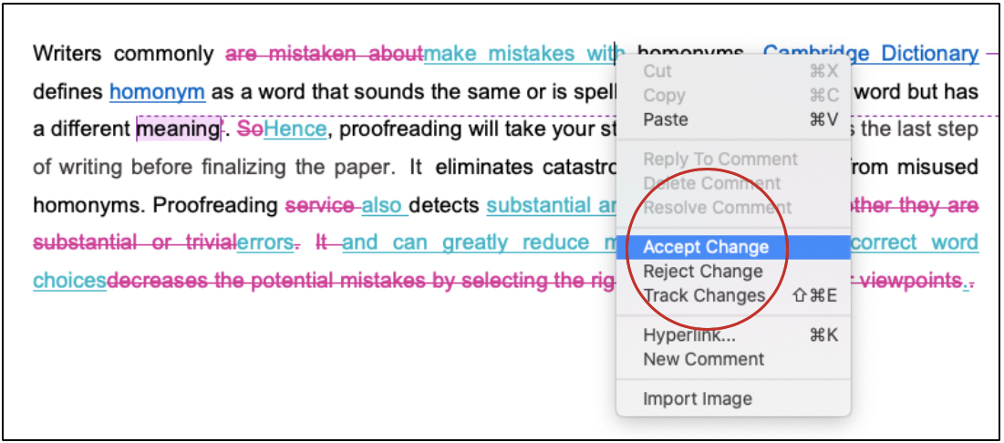Writing for academic purposes demands extreme finesse. It is not just the language that should be exemplary. Even the diction, the tone, and the context of the text should be on point. However, the path to achieving this finesse is a troublesome one. Many scholars, while treading this path, come across a myriad of academic writing problems that they find it too cumbersome to overcome. These problems can concern their language skills, research capabilities, or lack of awareness regarding their field of study. The purpose of this article is to address some of these recurring academic writing problems and suggest ways to deal with them.

Writing for academic purposes demands extreme finesse. It is not just the language that should be exemplary. Even the diction, the tone, and the context of the text should be on point. However, the path to achieving this finesse is a troublesome one. Many scholars, while treading this path, come across a myriad of academic writing problems that they find too cumbersome to overcome.
These problems can concern their language skills, research capabilities, or lack of awareness regarding their field of study. The purpose of this article is to address some of these recurring academic writing problems and suggest ways to deal with them.
The following list of writing problems expounds upon the reasons behind their occurrence and steps to neutralize them. Readers should examine the details mentioned here to identify and combat these problems with ease.
A lack of extensive research is one of the foremost reasons individuals find academic writing burdensome. Whether it is writing an essay or a dissertation, every academic document demands adequate research. This is so that the readers can assess the arguments and facts mentioned in the text in a fulfilling manner. But, when scholars refer to a limited number of resources, their understanding of the subject also remains limited.
This results in them struggling to transmute their arguments on paper soundly. To counter this problem, scholars should indulge themselves in a good amount of reading relevant and credible literature. Referring to a healthy number of sources broadens the horizon of an individual. It also allows them to comprehend the concepts they are pursuing better.
A thesis statement delineates the entirety of an academic document and entices the readers to traverse the text further. One can say that a thesis statement provides a countenance to a text.
As such, developing and including a convincing and highly argumentative thesis statement becomes a must. However, developing a concise and alluring thesis statement is a process that many academic writers find difficult to execute.
A time-tested method for drafting an appropriate thesis statement is to not focus on accuracy. One should start with a rough thesis statement and steadily revise it as the manuscript takes shape. Doing so will ensure that the thesis statement stays in line with the context of the text.
Uneven transitions are one of the most overlooked flaws in any academic text, especially among amateur writers. However, they are also an element that highlights a writer's linguistic proficiency.
Thus, to ensure the readers can traverse smoothly between paragraphs and sections, one should assume a holistic view of their manuscript. Then, they should zoom in to the individual sections and peruse their beginning and end. Finally, they should alter these two extremities (if needed) to form a bridge between them.
Academic writing adorns itself with several attributes. Some of these include objectivity, complexity, formal tone, and straightforwardness. And it is these (and a few more) attributes that hinder scholars from shifting to the academic way of writing.
Many times, scholars don't realize that the terms and phrases they are using are not suitable for formal writing. They use cliches, superlatives, idioms, and other taboo words only to get reprimanded later for doing so.
Changing writing styles on cues is challenging, but one can do it with enough practice. To further fortify their writing efforts, scholars can also document all the words and phrases either on paper or in memory.
The final academic writing problem in this list is one that prominently plagues budding academic writers. Academic writing myths refer to a set of bogus rules that have no logical grounds but enjoy a following nonetheless. A classic example of this would be the notion of enriching a text with hefty usage of complicated words. Writers believe that the more the number of obscure words they use in their works, the better grades they will obtain. But they fail to understand that doing so will drastically decrease the readability of their works and trouble the readers.
Writing myths are widespread, and it is up to scholars to avoid them. Properly informing oneself about the writing statutes is a foolproof method for staying away from any such myths.
Academic writing is tough to master. It is, thus, no wonder why a significant number of scholars live in dread of it. However, academic writing is a necessary element of an academic's life, one that helps them represent their knowledge in a polished manner.
Hence, one should adopt a tenacious attitude to deal with all academic writing problems coming their way. Once done, academic writing will become a valuable asset for them.
Best Edit & Proof expert editors and proofreaders focus on offering manuscripts with proper tone, content, and style of academic writing, and also provide an upscale editing and proofreading service for you. If you consider our pieces of advice, you will witness a notable increase in the chance for your research manuscript to be accepted by the publishers. We work together as an academic writing style guide by bestowing subject-area editing and proofreading around several categorized writing styles. With the group of our expert editors, you will always find us all set to help you identify the tone and style that your manuscript needs to get a nod from the publishers.

You can also avail of our assistance if you are looking for editors who can format your manuscript, or just check on the particular styles for the formatting task as per the guidelines provided to you, e.g., APA, MLA, or Chicago/Turabian styles. Best Edit & Proof editors and proofreaders provide all sorts of academic writing help, including editing and proofreading services, using our user-friendly website, and a streamlined ordering process.
Visit our order page if you want our subject-area editors or language experts to work on your manuscript to improve its tone and style and give it a perfect academic tone and style through proper editing and proofreading. The process of submitting a paper is very easy and quick. Click here to find out how it works.
Our pricing is based on the type of service you avail of here, be it editing or proofreading. We charge on the basis of the word count of your manuscript that you submit for editing and proofreading and the turnaround time it takes to get it done. If you want to get an instant price quote for your project, copy and paste your document or enter your word count into our pricing calculator.
Contact us to get support with academic editing and proofreading. We have a 24/7 active live chat mode to offer you direct support along with qualified editors to refine and furbish your manuscript.
Follow us on Twitter, LinkedIn, Facebook, Instagram, and Medium.
For more posts, click here.
This article discusses the main academic writing problems and gives some helpful tips on how to deal with them. To give you an opportunity to practice proofreading, we have left a few spelling, punctuation, or grammatical errors in the text. See if you can spot them! If you spot the errors correctly, you will be entitled to a 10% discount.
How to Determine Variability in a Dataset
14.10.2023
How to Determine Central Tendency
19.02.2023
How to Specify Study Variables in Research Papers?
14.01.2023
Population vs Sample | Sampling Methods for a Dissertation
14.01.2023
How to Ensure the Quality of Academic Writing in a Thesis and Dissertation?
04.12.2022
How to Avoid Anthropomorphism in Your Dissertation?
04.11.2022
How to Write a Research Methodology Section for a Dissertation and Thesis
07.08.2022
How to Write a Theoretical Framework for a Dissertation and Thesis?
05.08.2022
How to Write Literature Review for a Dissertation and Thesis
02.08.2022
How to Write a Dissertation and Thesis Introduction
31.07.2022

Academic writing is the type of writing style that requires a lot of attention to details, rules, and regulations. Mainly used for, as you might have guessed, academic purposes, it is one of the most common writing styles for professional works. However, as regulated and strict it is, it is also easier to make mistakes here. One such very common mistake that happens all the time for several researchers is sentence structuring. Sentence structuring has always been a little tricky, academic writing or not. That is why a great emphasis is made on them during the editing and proofreading phases. This article discusses the most common sentence structuring mistakes and how you can avoid them.
Continue Reading
As a college student in the USA, the UK, Canada, or anywhere else, you may have a wealth of opportunities for freelance work due to your connections. Freelancing can be an excellent way to create an income stream and expand your writing portfolio. Take early advantage of your education while you're still in school and start a freelancing career. This handout provides an easy guide for freelance opportunities for college students.
Continue Reading
Writing for academic purposes entails writing literature that is formal in tone, objective, structure-wise complex and contains a fair amount of academic jargon. As such, there are certain words and phrases, collectively called taboo words, that academic writers omit when writing manuscripts. Academic writing encourages their elimination to maintain the “formality” of academic documents. This article discusses the definition of taboo words to avoid and examine their use cases.
Continue Reading
Researchers develop theories to explain phenomena, build connections, and make educated guesses. Therefore, you illustrate the existing ideas supporting your dissertation or thesis in a theoretical framework, depicting that your work has a solid foundation.
Continue Reading
While researching a group of people, collecting data from every person in that group is virtually impossible. To counter this issue, you choose a sample. What is the difference between population and sample? What sampling methods should you use in your dissertation?
Continue Reading